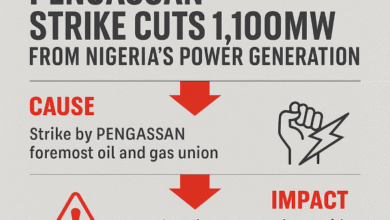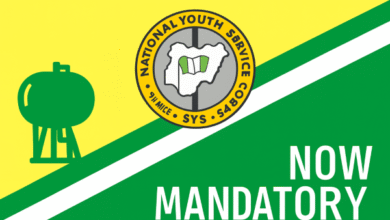Despite border closure, Libya’s instability caused arms proliferation in Nigeria – Buhari

 President Muhammadu Buhari on Thursday agreed with critics that despite his regime’s recent closure of land borders, arms and ammunition continued flowing illegally. This he said was due to the situation in Libya. President Buhari lamented that once as long as Libya remains unstable, illegal arms and ammunition will continue to flow in from the Sahel region of Africa.
President Muhammadu Buhari on Thursday agreed with critics that despite his regime’s recent closure of land borders, arms and ammunition continued flowing illegally. This he said was due to the situation in Libya. President Buhari lamented that once as long as Libya remains unstable, illegal arms and ammunition will continue to flow in from the Sahel region of Africa.
In a press release the President stated that “As far as Libya remains unstable, illegal arms and ammunition will continue to flow in the Sahel region of the African continent”.
The president spoke Thursday at State House, Abuja, while receiving in farewell audience the outgoing Special Representative of the United Nations Secretary-General and Head of the United Nations Office for West Africa and the Sahel (UNOWAS), Mohammed Ibn Chambas.
President Buhari said Muammar Gadaffi held a grip on power in Libya for 42 years by recruiting armed guards from different countries, who then escaped with their arms when the Libyan strongman was killed.
READ ALSO: https://brandeconomy.com.ng/finally-president-buhari-appoints-new-service-chiefs/
“They didn’t learn any other skill than to shoot and kill. So, they are a problem all over the Sahel countries today,” the president said, adding:
“We closed our land borders here for more than a year, but arms and ammunition continued to flow illegally. As far as Libya remains unstable, so will the problem remain.
“We have to cope with the problems of development, as we can’t play hop, step and jump. But we will eventually overcome those problems.”
President Buhari described Chambas, who spent many years in Nigeria in different capacities, from ECOWAS to UN, as “more of a Nigerian than anything else.”
He wished him well in his future endeavours.
The outgoing Special Representative thanked the President “for personal support I received from you, and from Nigeria as a country,” adding that the country would continue to play a leadership role on the continent.











